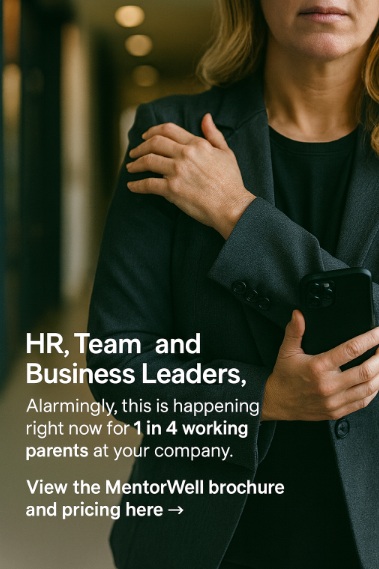The Day My Daughter Died: What Every Workplace Needs to Know Now
I remember April 11, 2015 in a way I remember nothing else.
That was the day my 14-year-old daughter, Maddie, died by suicide.
There is no preparing for a day like that.
No warning that feels clear enough.
No way to understand the pain until you are living inside it.
It felt like the world fell out from under me.
One moment I was a father, the next, I was a parent trying to understand the impossible.
I spent months and years replaying everything.
Every silence.
Every quiet shift.
Every moment I brushed off as normal teenage behaviour.
Maddie was a bright and kind kid.
Warm. Funny. Thoughtful.
She lit up rooms.
But depression can hide behind a smile.
And she hid it well.
After she died, I kept asking myself the same questions.
What did I miss?
What should I have asked?
What could I have seen earlier?
There are no simple answers.
But those questions fuel what I do now.
The Hidden Crisis Parents Carry Into Work
Once I began sharing Maddie’s story, I learned something immediately.
My family was not alone.
Not even close.
There are parents in every workplace carrying fear for their child.
They stay silent because they think they have to.
They show up to meetings the morning after a panic attack at home.
They reply to emails after leaving the ER at 3 a.m.
They keep up the act because they think talking about it will hurt their career.
A 2023 Pew report found that 75 percent of working parents say their child’s mental health is their top concern.*
But at work, they say things like
“I’m fine”
“I’m just tired”
“It’s been a busy week”
Meanwhile they are checking their phones every few minutes for updates from a doctor or counsellor.
This is the quiet crisis inside your company.
Good employees.
Good parents.
Trying to keep everything together while their heart is somewhere else.
I know that feeling.
I lived it.
How This Pain Turned Into Purpose
After losing Maddie, I promised myself I would make sure other families got support before crisis hit.
Not after.
Not when it is too late.
Before.
That led me to create programs for parents, teens, and workplaces.
One of them is LifeLine Educational Workshops.
It exists because families need clear guidance long before things fall apart.
And workplaces need to understand that supporting parents at home improves how they show up at work.
This is not theory.
This is lived experience.
Mine.
And thousands of other families I have talked to over the last decade.
What Parents Learn in a LifeLine Workshop
LifeLine is not a lecture.
It is not clinical.
It is not heavy.
It is practical.
Employees learn what I wish I knew when Maddie was alive.
They learn how to spot early warning signs when a child begins to struggle.
They learn how to start a conversation with a teen who shuts down.
They learn simple scripts that help a parent talk without pushing too hard.
They learn where mentorship fits when a teen needs a safe adult outside the home.
And they learn how to reach clinical help fast when needed.
Parents often walk in feeling overwhelmed.
They walk out with clarity.
A plan.
And a sense that they are not alone in this anymore.
That matters more than people think.
Why This Matters for Workplaces
Most employers never see the full weight parents carry.
But you feel the impact.
Distraction.
Missed days.
Reduced focus.
A quiet heaviness that pulls people away from their work.
Seventy one percent of working parents say their child’s emotional health makes it hard to concentrate at work.
More than half miss work at least once a month to deal with their child’s mental health needs.
This is not an HR issue.
It is a human one.
When parents get support for their child, everything stabilises.
At home.
And at work.
They think clearer.
They sleep better.
They show up with more energy.
They feel loyal to the employer who supported them.
They bring a steadier presence to their team.
When you help a parent, you help every part of your workplace.
Why I Share This
I share this story because the quiet crisis is not rare.
It is happening in your office today.
It is happening to someone who has not told you yet.
It might even be happening to you.
No parent should have to choose between being a good employee and being a good parent.
No one should feel they must hide their family’s struggle to keep their job safe.
We can do better.
We can create workplaces where parents get support early.
Where the burden is understood instead of ignored.
Where families get help before crisis turns into tragedy.
If you want to bring LifeLine workshops into your workplace, I would be glad to talk.
I can also share more of the research and insights our team has gathered on supporting working parents with youth mental health needs.
This is not about programs.
It is about people.
Real families.
Real kids.
Real parents doing their best every day.
Support them early and you change their entire story.
Sometimes you even save a life.
*Pew Report 2023



